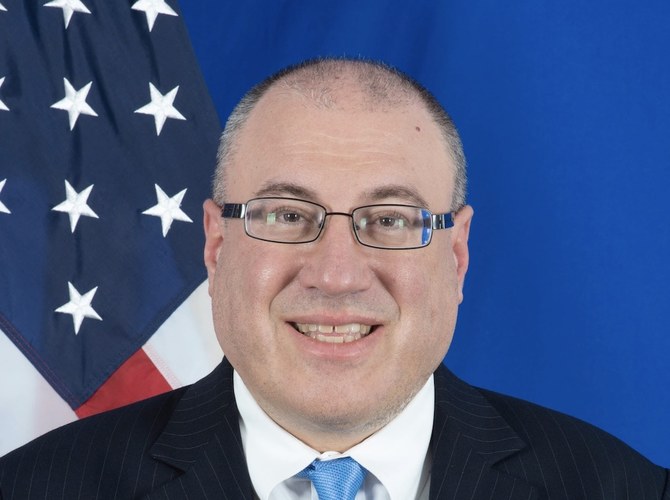CHICAGO: US President Joe Biden has said private entrepreneurs will be permitted to re-invest in areas of Syria that have been liberated from Daesh or are outside the Assad regime’s control.
Ethan Goldrich, deputy assistant secretary of state for Syria and the Levant in the Bureau of Near Eastern Affairs, said the program focuses on northeast and northwest Syria, and compliments $110 million in US funding earmarked for stabilization and undermining “violent extremism.”
The authorization encourages private business to invest in 12 economic sectors in an area of Syria protected by the US or under Kurdish or Turkish control.
The authorization excludes oil, most of which is controlled by Kurdish governing agencies in the northeast.
“Our aim with this is to prevent the resurgence of Daesh by mitigating growing economic and security (concerns), and restoring essential services in areas liberated from the terrorist group,” Goldrich said.
“The general license is designed to improve the economic conditions in non-regime-held areas of northeast and northwest Syria in support of ongoing US-led Daesh stabilization efforts.
“The authorization does not permit any activity with the government of Syria or other sanctioned persons, and does not alter existing counterterrorism sanctions.”
He said stabilization efforts include “restoring essential services” and “bolstering livelihood opportunities to help Syrians return to normal life.”
He said the private-sector investment can also provide support for returning Syrian refugees. Services include agriculture, telecommunications, health services and education.
Goldrich said the expansion of the program supports the humanitarian efforts led by the US and other nations to bring relief and freedom to the people of Syria.
“International donor funds are stretched thin,” he added during a teleconference on Friday hosted by the US State Department. “Without economic stability, these areas are vulnerable to exploitation by terrorist groups, especially Daesh.
“Private sector investment in these areas will help reduce the likelihood of Daesh’s resurgence by combating the desperate conditions that enable the terrorist group’s recruitment and support networks,” he said.
“US sanctions are aimed at the regime and people around the regime, and not at people who are in areas that are not even under the regime’s control.”
The new policy “does not waive sanctions” on the Assad regime, and continues to prohibit all transactions with it.
“We also continue to oppose reconstruction directed by or for the Assad regime, which would only serve the regime’s narrow interests and not the Syrian people,” Goldrich said.
“It’s not a political step, it’s an economic step and a stabilization step to help improve conditions for people living in these non-regime areas and make it easier for them to find jobs and livelihoods, bringing more income into the areas which would not have come in just through humanitarian or stabilization assistance. It opens up other private-sector money into the areas that would benefit them.”
Also participating in the teleconference were Zehra Bell, director for Iraq and Syria at the National Security Council, and Erik Woodhouse, deputy assistant secretary of state for counter-threat finance and sanctions in the Bureau of Economic and Business Affairs.


















